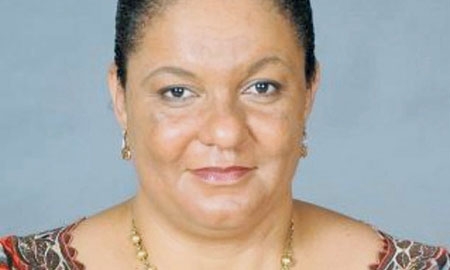In a sub-regional context, Ghana is a role model in political rights, civil liberties and economic growth. The Ministry of Foreign Affairs and Regional Integration, headed by Hanna Tetteh, however, works under the premise that Ghana is not an isolated economy and that by joining forces with its neighbours, all countries could enjoy greater socioeconomic development.
“Ghana is the second largest economy in West Africa after Nigeria and we’ve been doing very well for the last couple of years. We recognise, though, that we would do much better within an integrated regional environment than as a stand-alone entity,” explains Ms Tetteh.
“There is a significant amount of business taking place between Ghana and the UK in different areas: manufacturing, the financial services sector and more recently we have seen it in advisory services as well”
Hanna Tetteh, Minister of Foreign
Affairs and Regional Integration |
A key to integrating the numerous countries is shared infrastructure. “You have got to be able to look beyond your national needs in terms of infrastructure development and work with a bigger regional plan in view, so that you can create the kind of shared infrastructure that makes it possible for people to see not just your country but your region as a place for doing business,” says the minister.
A larger market made up of many African countries (average continental growth hovers around 4.5 per cent) would raise investment potential manifold. Ms Tetteh also believes there could be a stronger focus on intra-African trade. She points out that presently, Africa does on average about 12 per cent of its trade within the continent. This figure is extremely low compared to intra-EU trade of 60 per cent, or ASEAN area trade.
“That tells us that there is a lot of space for improvement and for building partnerships between sister countries that will help our people to be able to exploit the various social and economic opportunities available,” she says.
The Economic Community of West African States’ (ECOWAS) trade liberalisation scheme is a good start, but there is still much to be done in making it more operational. And expanding the legal framework and protocols continent-wide is an even larger challenge that, if successful, could change the way the world views Africa.

0 COMMENTS